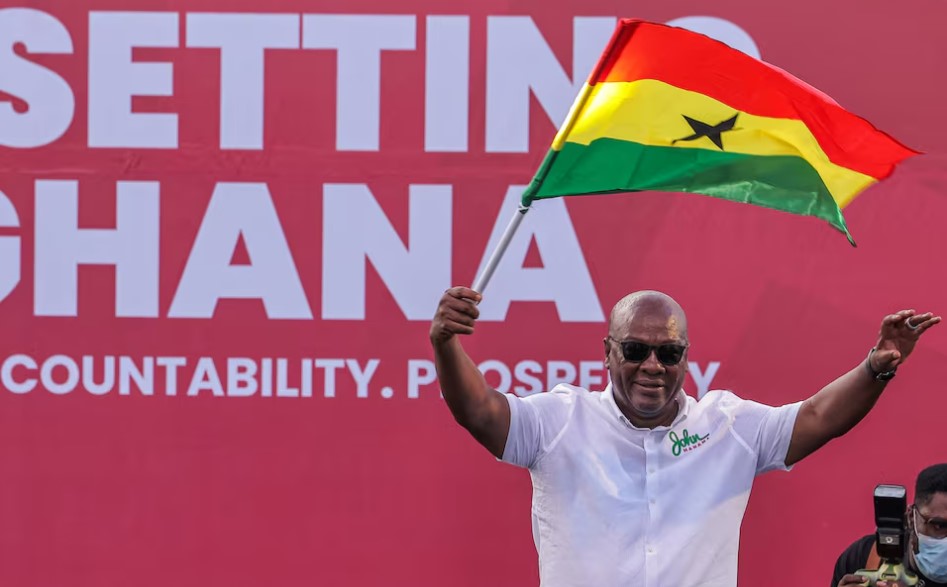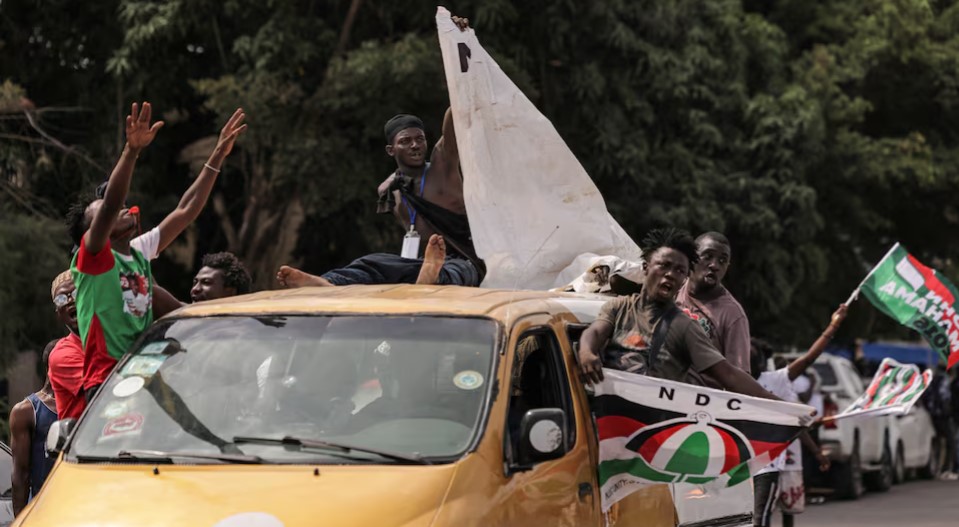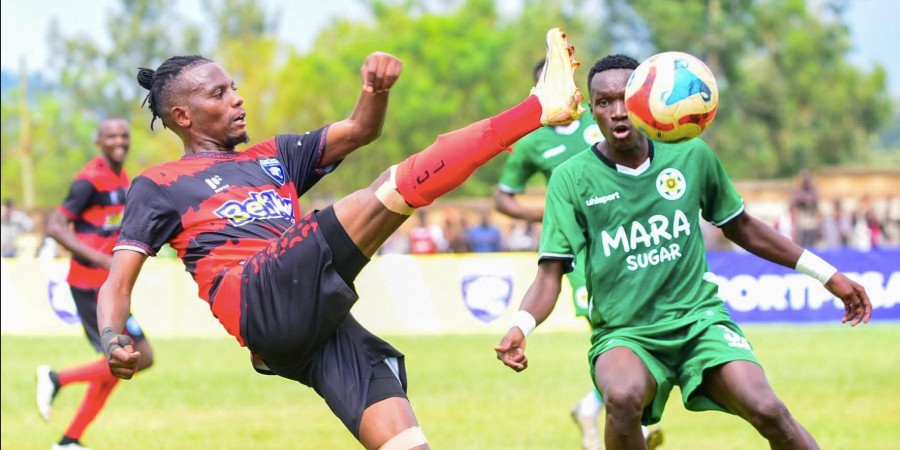Ghana's former president John Dramani Mahama's comeback sparks hope for future

His supporters hope he will bring stability to the north, while detractors remember power cuts and financial problems.
Ghana's former president John Dramani Mahama is set to return to the country's top job after the ruling New Patriotic Party (NPP) candidate Mahamudu Bawumia conceded defeat on Sunday following Saturday's election.
Bawumia's loss brings to an end eight years in power for the NPP under President Nana Akufo-Addo, who stepped down after serving his two legally allowed terms, the second of which was marked by the country's worst financial crisis in decades.
More To Read
- Ghana expels three Israelis over Ben Gurion Airport detentions
- Ghana slams Israel after citizens detained and deported at Ben Gurion Airport
- Court certifies urgent petition over Sh17 billion waste contract awarded to Ghanaian firm
- Bad weather, safety gaps blamed for Ghana helicopter crash that killed ministers
- Africa imports over 70 per cent of its medicines — Local production of ingredients could change that
- Ghana suspends all boxing activities following boxer’s death
Ahead of the official announcement from the Electoral Commission of Ghana, Bawumia told a press conference that Mahama had "won the presidential election decisively," adding that the people of Ghana had "voted for change at this time, and we respect it with all humility".
Mahama, from the opposition National Democratic Congress (NDC), served as president between July 2012 and January 2017. He had twice failed to reclaim the presidency in Ghana's 2016 and 2020 elections.
He has yet to speak publicly, but on his X account, he confirmed that he had received a congratulatory call from Bawumia following his "emphatic victory."
Hopes for northern development
In northern Ghana, where the newly elected president is from, residents said they hoped that he would bring peace to the region, which is often threatened by jihadist groups in the Sahel, and much-needed development.
"We will benefit, and the north will now be respected because of his election. We are proud of him and believe he will bring down the cost of living," Memunatu Mutawakil, a local trader in Tamale, told DW.
 Mahama’s supporters celebrate after his rival Vice President Mahamudu Bawumia conceded defeat on December 8, 2024. (Photo: REUTERS/Zohra Bensemra)
Mahama’s supporters celebrate after his rival Vice President Mahamudu Bawumia conceded defeat on December 8, 2024. (Photo: REUTERS/Zohra Bensemra)
Alhassan Ziblim, a political analyst also based in northern Ghana, told DW that Mahama would address regional security challenges because of his well-regarded mediation skills and international standing.
"President Mahama, as Ecowas (Economic Community of West African States) chair, mediated a lot of conflicts in the sub-region, and with this experience, I believe he will have a critical role to play in bringing the sub-region together and mediating Ghana's internal conflicts."
However, Ziblim warned that the development of the region would depend on Mahama's appointments to key positions under his administration.
"Policy is blind to identity. Any good policy will benefit anybody anywhere, regardless of where you come from. So if Mahama implements the right policies, it doesn't matter whether he is a northerner or not, northern Ghana will develop."
The 'nation builder' is back
Laila Alhassan, a 20-year-old trader and Mahama’s supporter in Ghana's capital Accra, described Mahama's victory as a shared one for Ghana and the beginning of a new chapter.
"We are very happy for his excellency, John Dramani Mahama. They said he couldn't come, but he has come; the nation-builder is back to build Ghana for us. We need schools, we need hospitals, and we need work. The 24-hour economy is here, and it's here to stay."
The term "nation-builder" is a reference to Mahama's political persona, which is often associated with his efforts to develop and improve Ghana's infrastructure and economy during his previous tenure as president.
This hopeful sentiment was echoed by many of Mahama's supporters, including 32-year-old Rukayat Musa, who said she had high expectations because "he has already done a lot in the short four years, so I know he can do more."
Economic struggles dominate election
The election for both the president and members of parliament was held against the backdrop of Ghana's worst cost of living crisis in a generation. It was seen as a litmus test for democracy in a region shaken by extremist violence and coups.
Ghana, the African continent's top gold producer and the world's second cacao exporter, experienced a default and currency devaluation crisis that ended with a $3 billion (ca. €2.8 billion) bailout from the International Monetary Fund.
Though inflation has fallen from more than 50 per cent to around 23 per cent and other macroeconomic indicators have stabilised, many still saw Ghana's economic struggles as a key election issue.
Frustration opened the way for Mahama's comeback.
During the campaign, the former president also faced criticism from those who remember his government's financial problems and especially the "dumsor" (on and off) power cuts that marked his time in office.
Economic crisis fuels Mahama's return
Campaigning under the slogan 'Break the 8' — a reference to the NPP's two terms in power — Bawumia had hoped to lead his party to an unprecedented third term.
But no party in Ghana under the Fourth Republic — 1992 to the present — has ever won more than two consecutive terms. The NDC and the NPP have always lost power after eight years.
Boakye Millicent from northern Ghana was among those hoping for leadership change outside of the traditional NPP and NDC, which he feels no longer serve the people's needs.
"Ghanaians are confused because we are jubilating that Mahama is back. What is he coming to do?" wondered Boakye.
"I still see that we Ghanaians don't know what we want. There were other parties that we could have given a chance. But we inherited the NDC and NPP even if they do nothing."
Top Stories Today














































